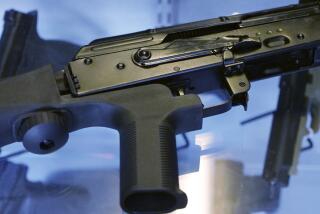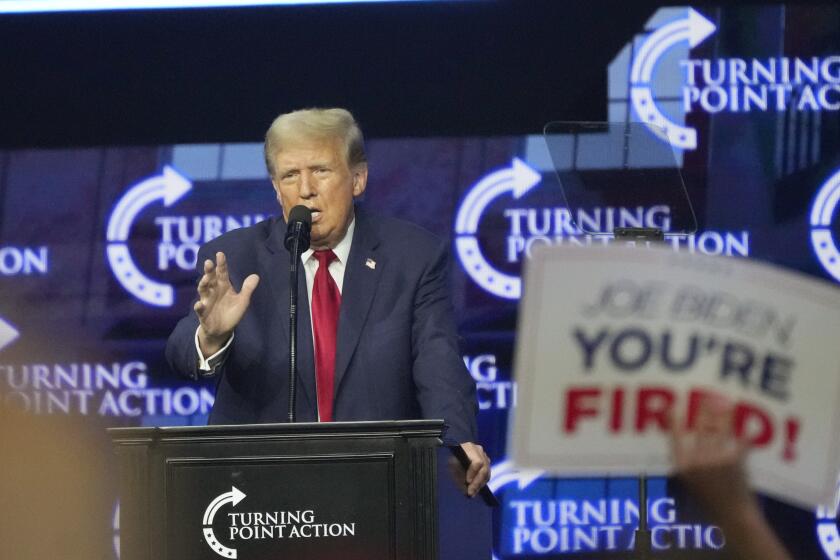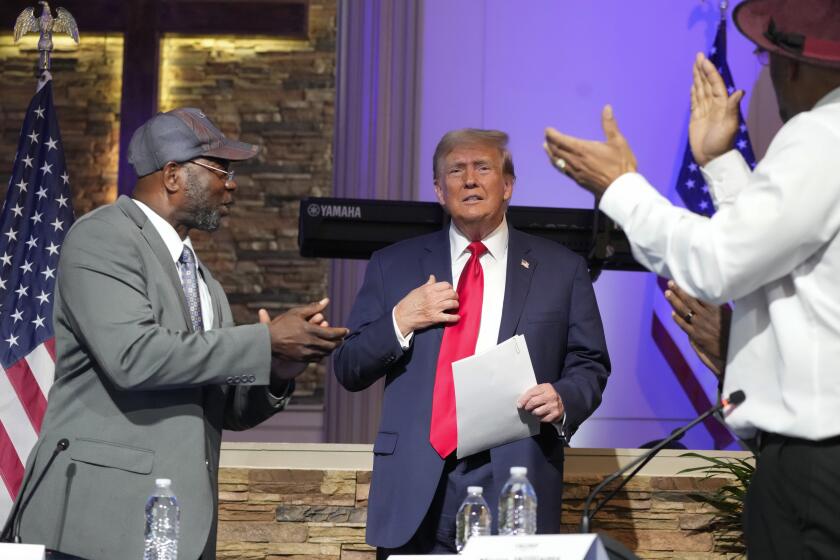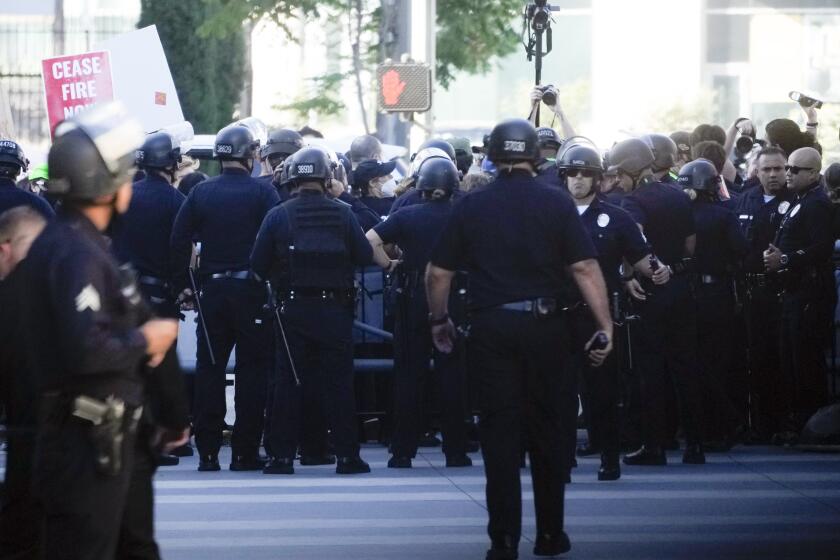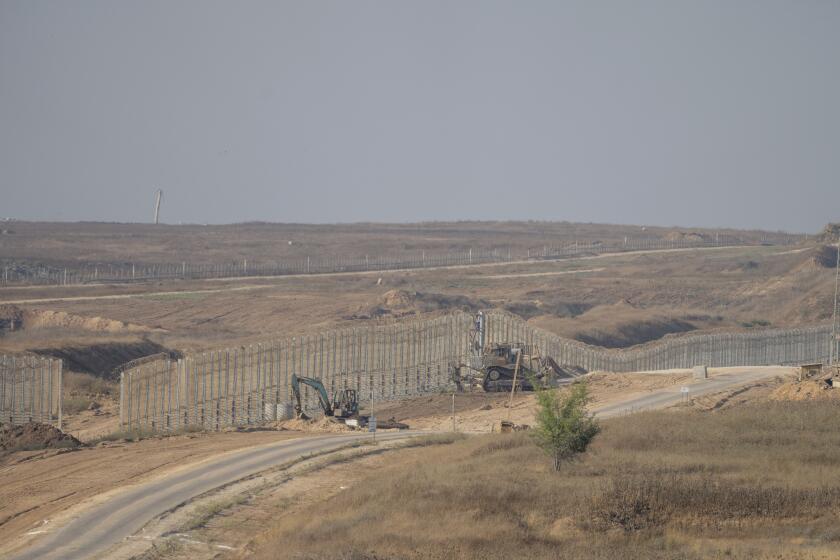In Asia, Civility Dims Sino-U.S. Rancor
Last week, the Blue Ridge--the command ship for the Navy’s 7th Fleet--steamed into Hong Kong and docked right at Ocean Terminal, opening the way for American sailors to enjoy shore leave amid some of the world’s most expensive shops.
Upon his arrival, Adm. Robert J. Natter, the 7th Fleet commander, took care to invite Commissioner Ma Yuzhen, the Chinese government official responsible for approving American port calls here, aboard the Blue Ridge for lunch.
It was merely a small gesture of goodwill, but it illustrated the surprising way things are going these days between America and China.
What is emerging in Asia might be called Pax Sino-Americana. The two leading powers, the United States and China, seem for now to be working together to keep the peace in the region and at the same time to avoid making too much trouble for one another.
In Washington, China is the subject of endless controversy. Congress challenges the Clinton administration over how to deal with Beijing. House Minority Leader Richard A. Gephardt (D-Mo.) challenges Vice President Al Gore over China, and the neoconservative and populist wings of the Republican Party invoke China against the business wing of the party.
These disputes are serious ones. Yet oddly enough, in Asia itself the relationship between the United States and China is characterized by remarkable tranquillity. Washington and Beijing are going out of their way to avoid offending or challenging one another.
When Taiwan President Lee Teng-hui claimed in a couple of newspaper interviews a few weeks ago that Taiwan was independent, China (which considers Taiwan part of its own territory) reacted coolly.
Beijing sat back while Taiwan Foreign Ministry officials hurriedly explained that what Lee meant to say was nothing new. China didn’t want another flare-up over Taiwan of the sort that erupted into a military confrontation with the United States in early 1996.
Nowhere is Pax Sino-Americana more evident than in Hong Kong. In the five months since China regained sovereignty over the former British colony, it has sought to be reassuring to the United States.
About 25 U.S. warships and thousands of American sailors have made port calls here, just as they did when Hong Kong was a British colony. The only difference is that whereas British officials gave their approval for these port calls within a day, it takes Chinese officials about five days.
In an interview at his new headquarters here, Ma, the Chinese official in charge of Hong Kong’s relations with foreign governments, said each time the American ships want to drop by, he gets formal authorization for the visit from Beijing and, notably, from the People’s Liberation Army.
For now, at least, the subdued atmosphere in Hong Kong extends beyond military matters to politics, too.
Hong Kong’s and America’s worst fears about what might happen when China took over here have not been realized.
The triumvirate of new, unflattering Hollywood movies about China (“Seven Years in Tibet,” “Red Corner” and “Kundun”) have not yet been shown in Hong Kong. But after an outcry about whether the local film industry was displaying self-censorship, it now appears that they may be shown here early next year.
“We may have our views on that [the Hollywood movies], but we will not say anything,” said Ma, who used to be China’s consul-general in Los Angeles. “Hong Kong is a relaxed place. My instructions are very clear from Beijing: This is a new situation. You should try to work out new approaches.”
In general, Beijing’s behavior over the last few months suggests that the Chinese leadership has made a strategic decision to minimize conflicts with the United States while it concentrates on dealing with domestic economic problems, such as its unprofitable state-owned enterprises.
Out of this new, smoother relationship with Washington, China gains some breathing room. Chinese President Jiang Zemin wins further legitimacy. The U.S. government obtains a more trouble-free climate in Asia, and side-benefits like continued Navy port calls to Hong Kong. American companies don’t have to worry that they will lose contracts in China because of political disputes.
But there are trade-offs. Pax Sino-Americana means that the Clinton administration also backs off from challenging China too much on questions involving democracy.
In taking control here, China threw out Hong Kong’s elected Legislature. It also changed the voting rules to make sure the Democratic Party, which won the last election in 1995, doesn’t regain so many legislative seats in May. The Clinton administration hasn’t protested too vociferously; its reaction has been as muted as was China’s over Lee Teng-hui’s interview.
“To be fair to the Chinese leaders, they have kept very quiet,” says Martin Lee, another of the ousted legislators, who is Hong Kong’s most forceful proponent of democratic change.
However, Lee adds, “To those people who say, ‘So far, so good,’ I say, yeah, what about the future? . . . Right now, things are going relatively well in China. What happens when the pendulum swings back? All the systems are in place for Beijing to squeeze us at will.”
*
More to Read
Start your day right
Sign up for Essential California for news, features and recommendations from the L.A. Times and beyond in your inbox six days a week.
You may occasionally receive promotional content from the Los Angeles Times.

